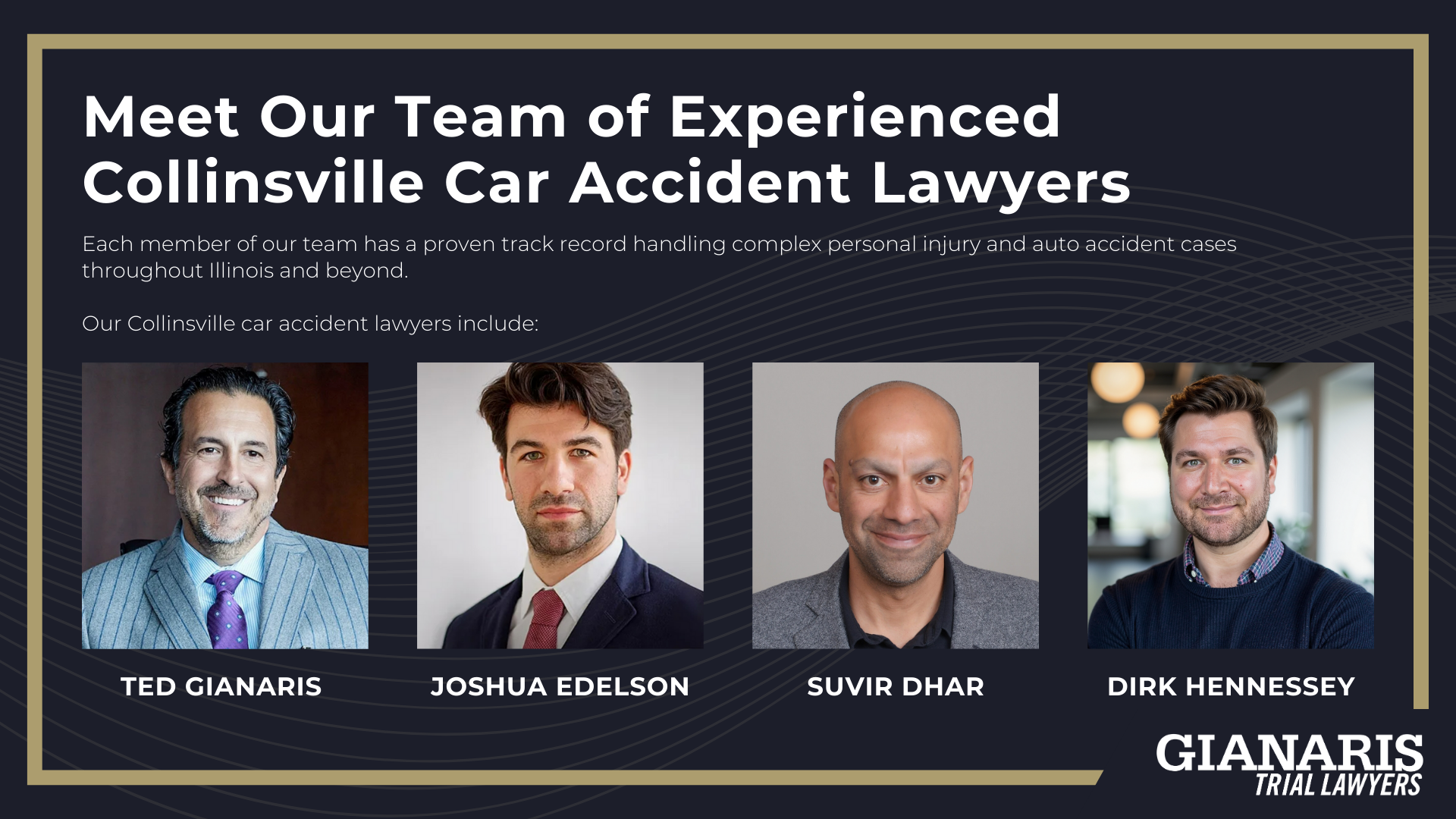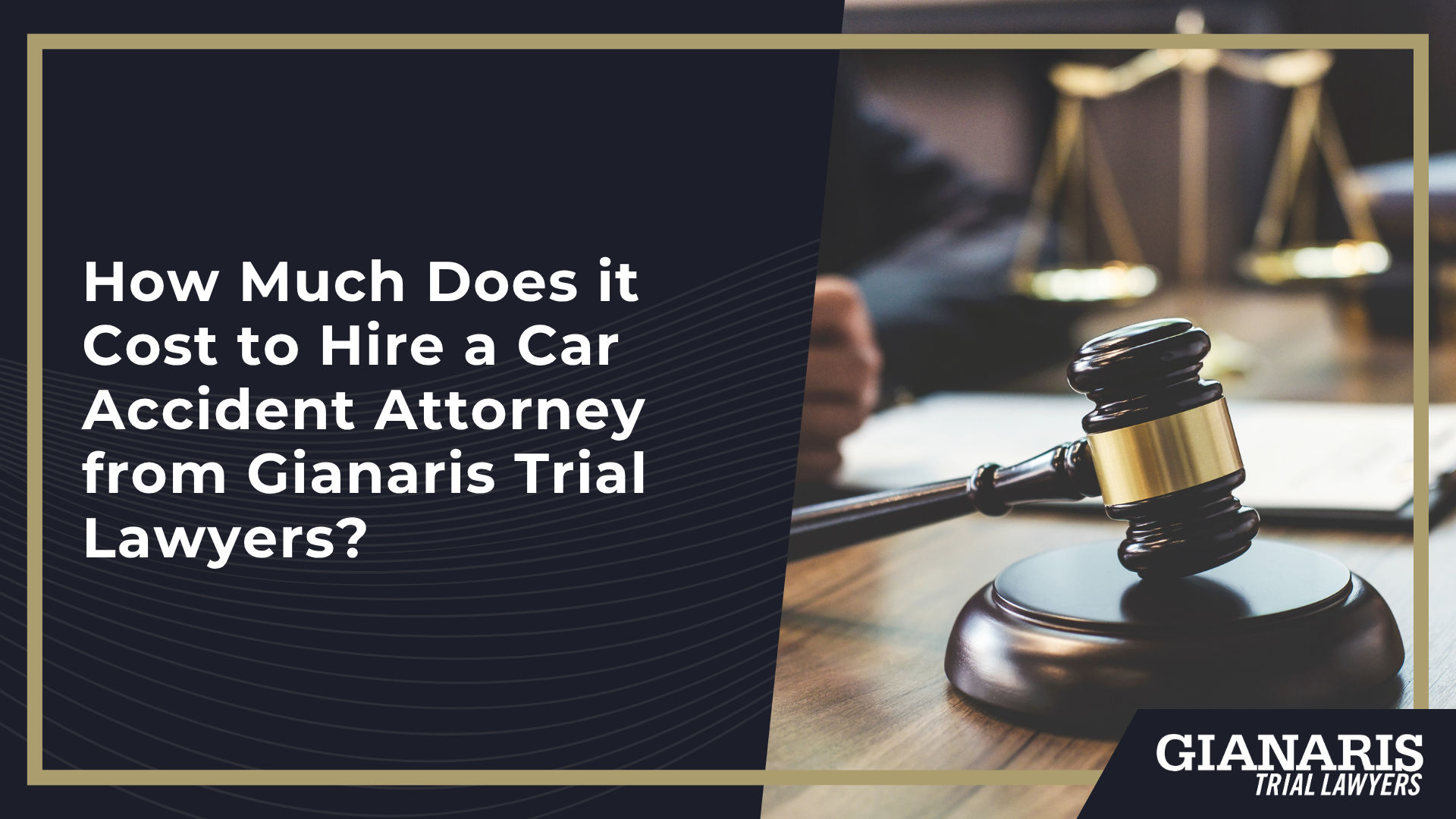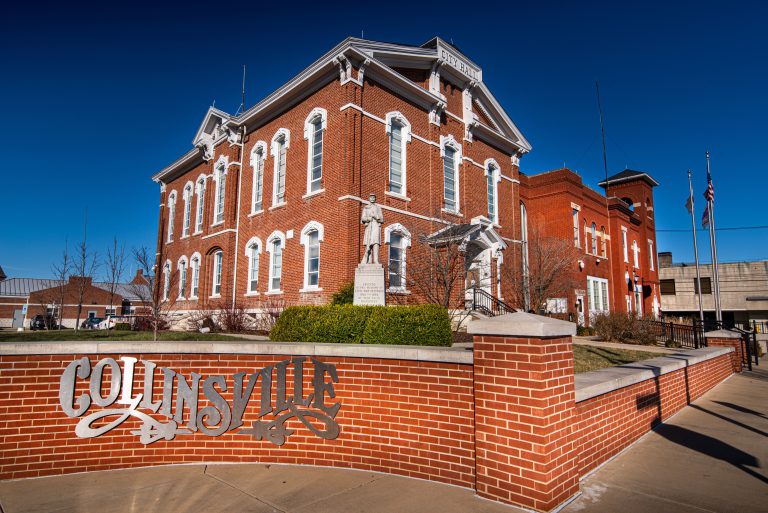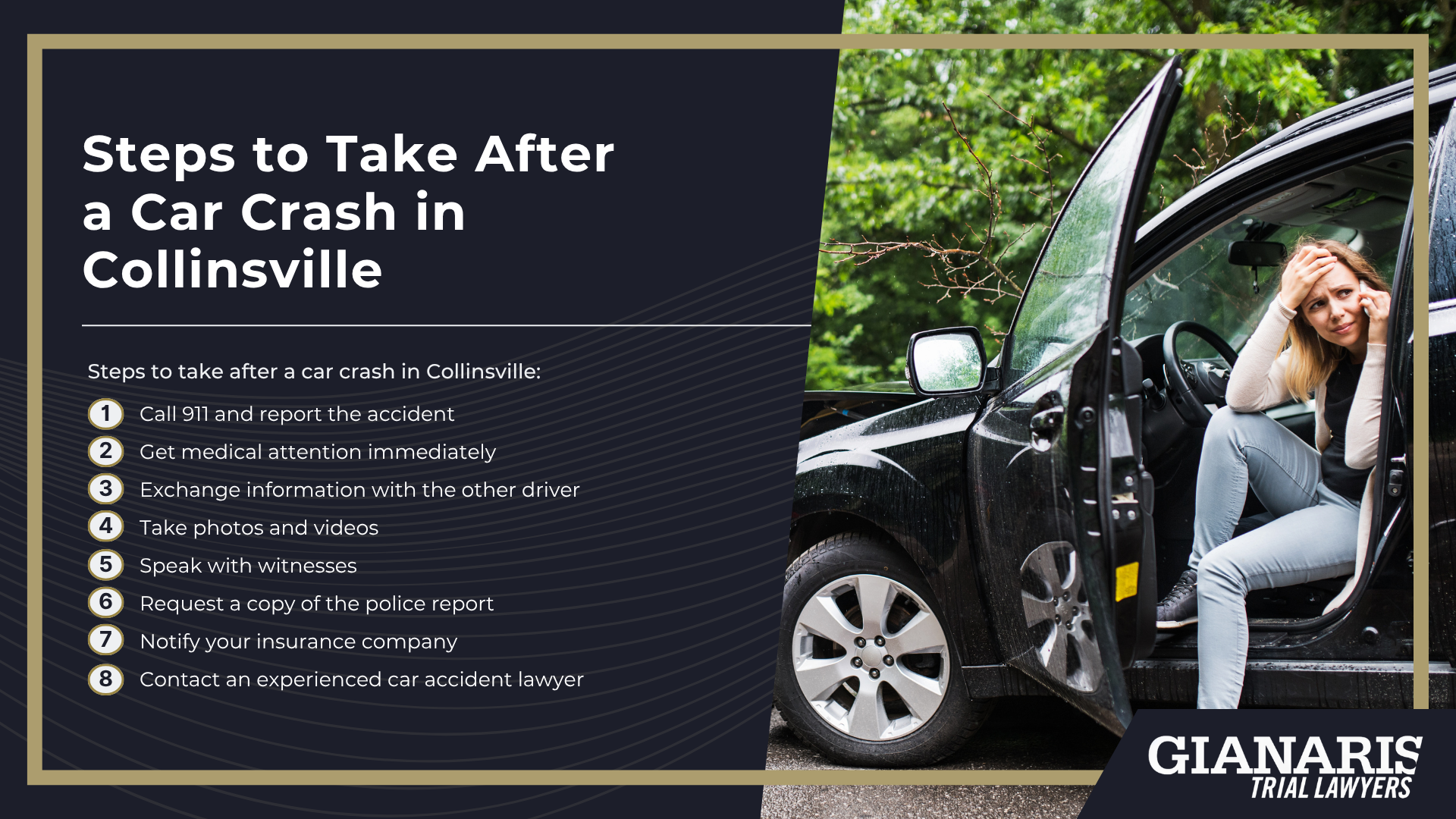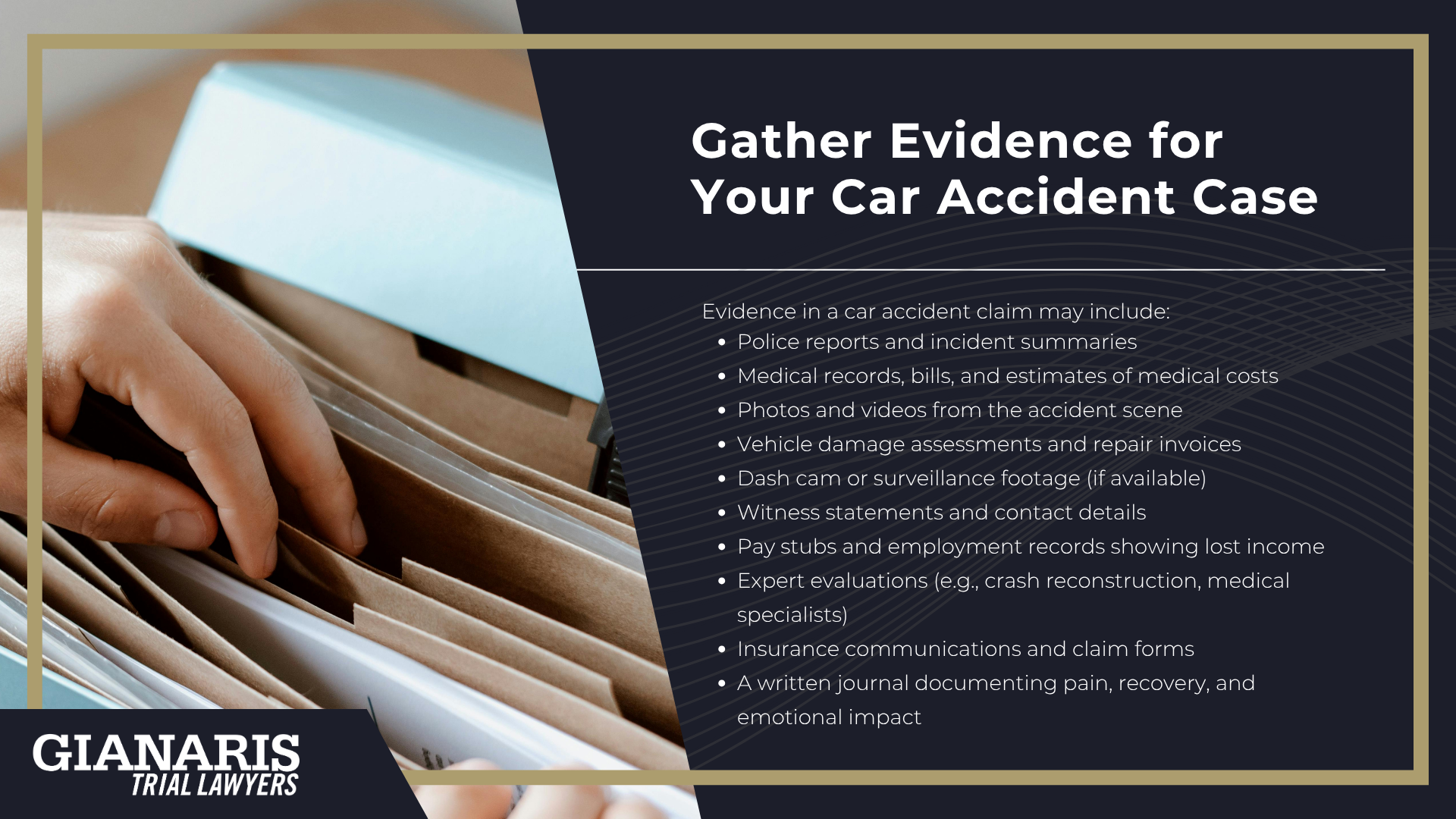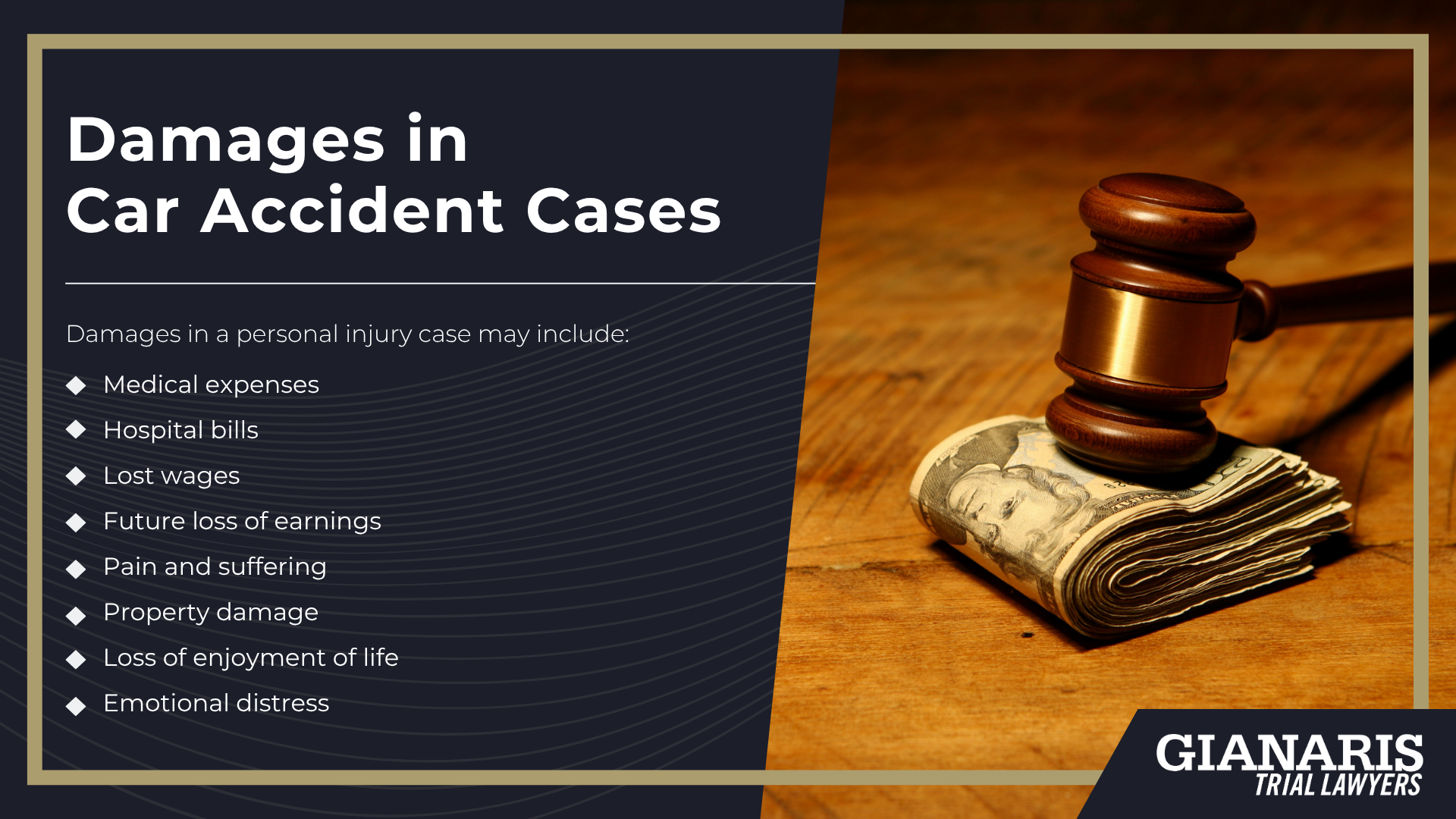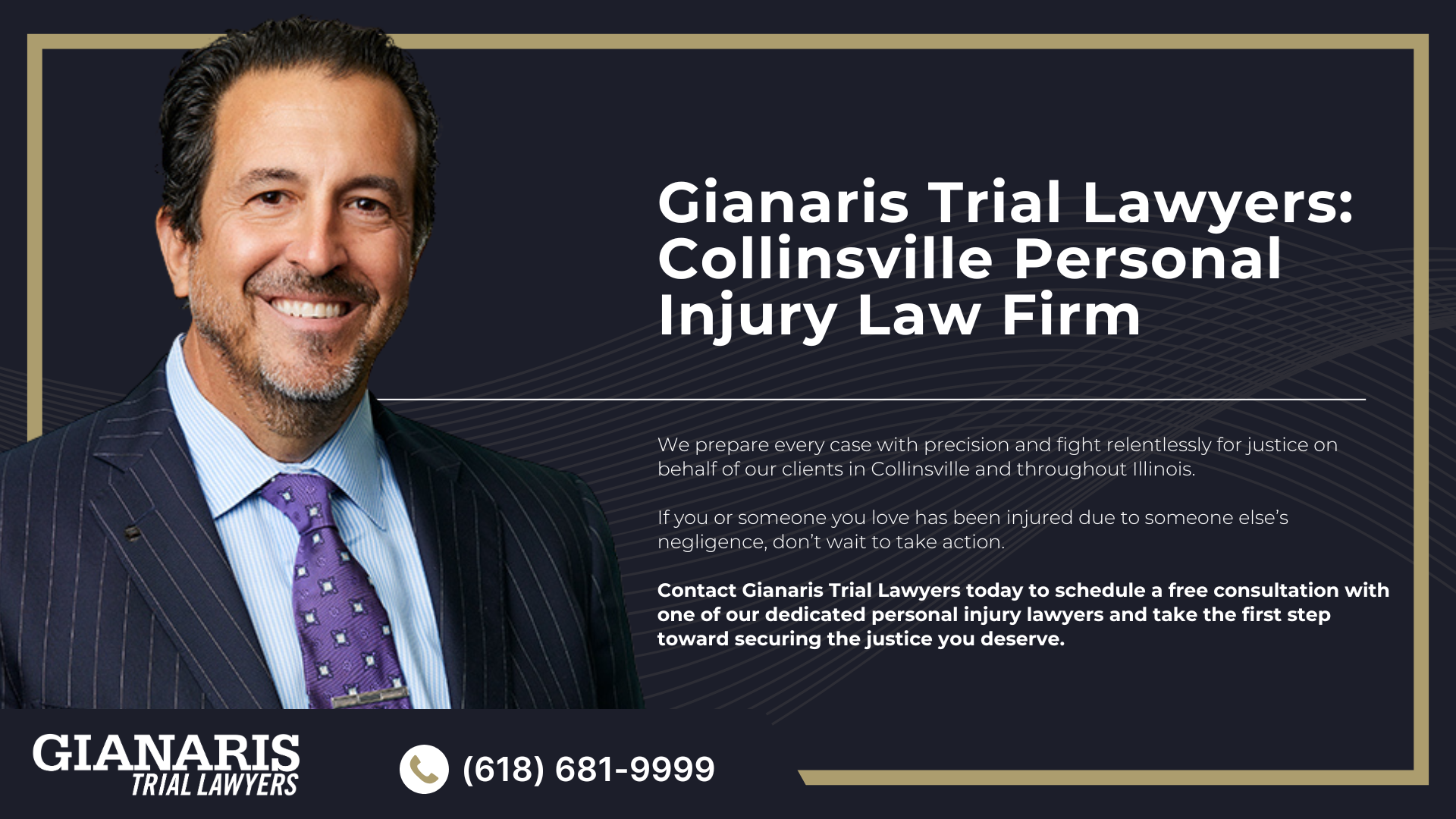Illinois personal injury law allows car accident victims to pursue compensation when someone else’s negligence causes harm.
Whether you’ve been seriously injured in a car wreck or lost a loved one in a wrongful death crash, you have the right to file a car accident claim to recover damages.
The state follows a fault-based system, meaning the at-fault driver—and their insurance provider—are responsible for covering your losses.
After an accident occurs, it’s important to document what happened through a car accident report, collect accident scene photos, and seek care from a medical professional.
In cases like a hit-and-run accident, it may be possible to pursue compensation through your own uninsured motorist coverage.
From dealing with the insurance adjuster to filing a formal lawsuit, the legal process can be complicated.
Our car crash lawyers will guide you through every stage of your claim, protect your rights, and fight for the maximum compensation possible.
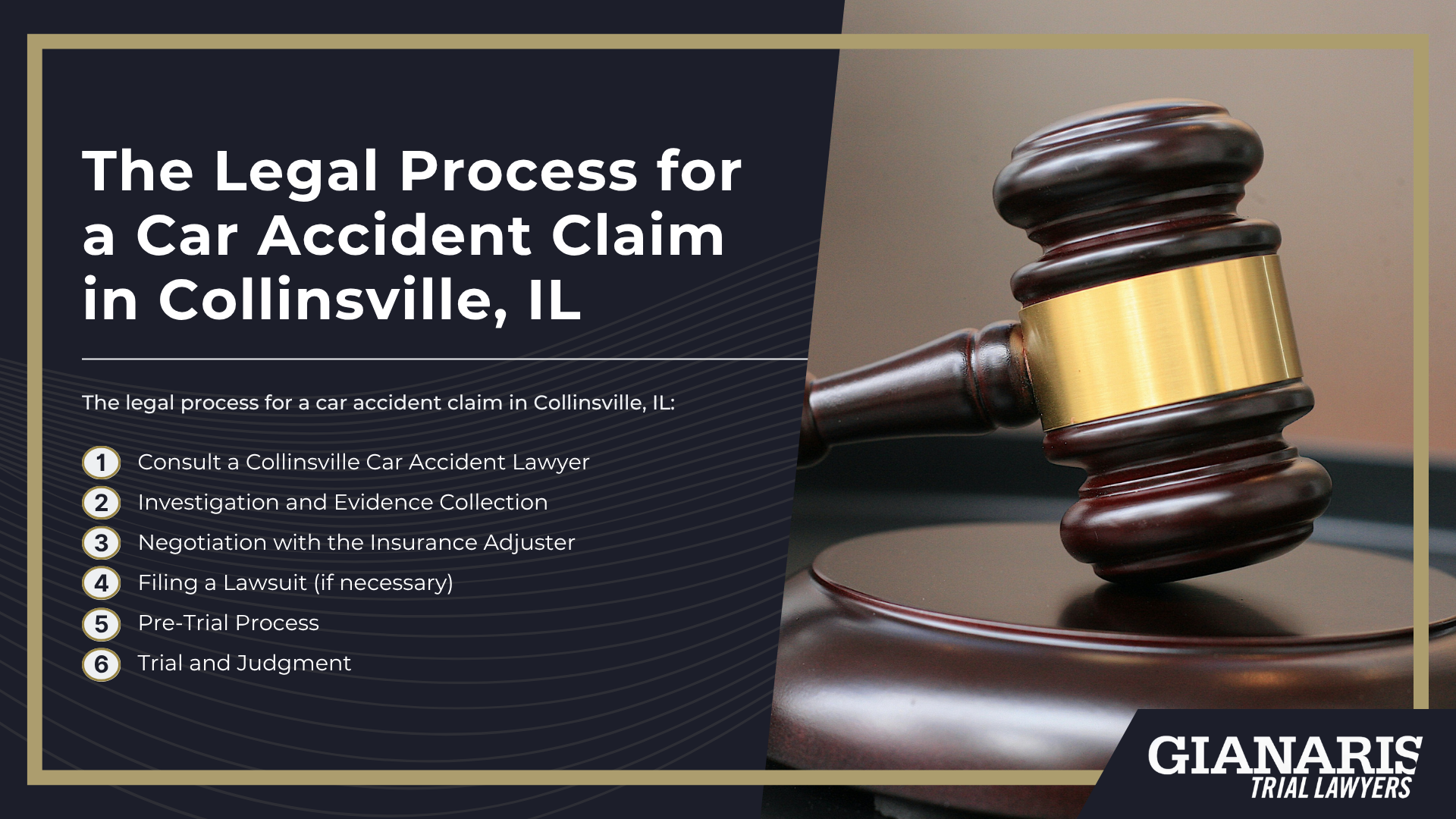
The legal process for a car accident claim in Collinsville, IL:
- Consult a Collinsville Car Accident Lawyer: An attorney can evaluate your case, identify liable parties, and prepare your legal strategy.
- Investigation and Evidence Collection: Your lawyer will gather medical records, expert opinions, vehicle damage reports, and insurance information.
- Negotiation with the Insurance Adjuster: Your attorney will negotiate with the insurance companies to seek a fair settlement on your behalf.
- Filing a Lawsuit (if necessary): If negotiations fail, your attorney will file a formal lawsuit and prepare for trial.
- Pre-Trial Process: This includes discovery, motions, and potential mediation to resolve the case before court.
- Trial and Judgment: If the case goes to trial, a judge or jury will decide liability and award damages.
Illinois Insurance Coverage Laws for Auto Accidents
Understanding Illinois insurance laws is critical when filing an insurance claim after a crash.
Whether you’re dealing with your own auto insurance company or the other driver’s insurance company, knowing your rights under state law can help you protect your claim and seek fair compensation.
Illinois law sets specific minimum coverage requirements and outlines how insurance companies must handle claims involving injury, property damage, and uninsured drivers.
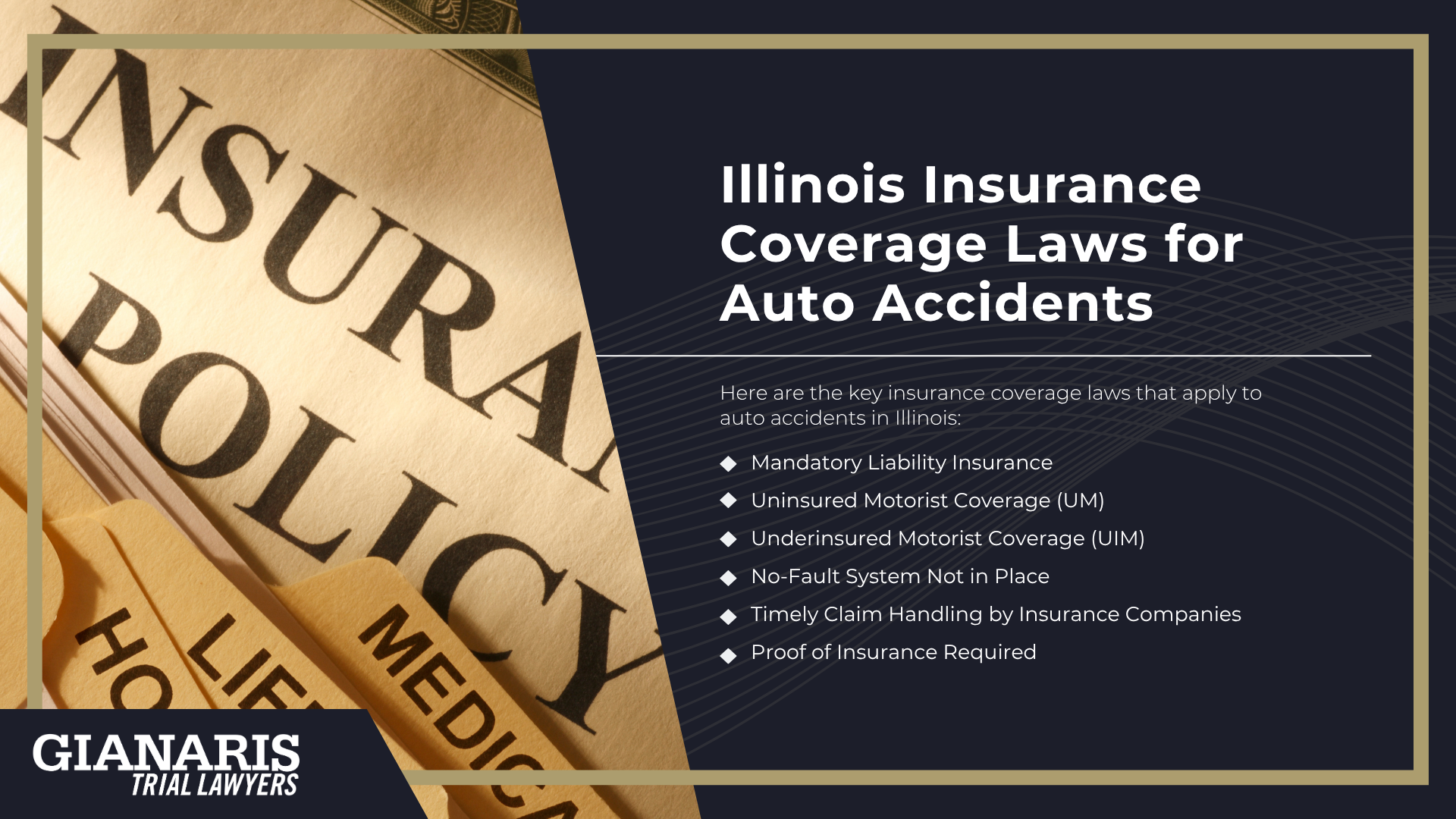
Here are the key insurance coverage laws that apply to auto accidents in Illinois:
- Mandatory Liability Insurance: All drivers in Illinois are required to carry liability insurance that covers at least $25,000 for bodily injury per person, $50,000 per accident, and $20,000 for property damage.
- Uninsured Motorist Coverage (UM): Illinois law also mandates uninsured motorist coverage equal to the minimum bodily injury limits ($25,000/$50,000), which applies when the other driver does not have insurance.
- Underinsured Motorist Coverage (UIM): While not required, UIM coverage is typically included and helps cover injuries when the at-fault driver’s insurance isn’t enough to pay for your losses.
- No-Fault System Not in Place: Illinois is a fault-based state, meaning the party found at fault for the accident is responsible for paying damages through their insurance. Personal injury protection (PIP) is not required and is not part of the state’s insurance system.
- Timely Claim Handling by Insurance Companies: Once an insurance claim is filed, the auto insurance company is legally obligated to respond promptly and settle claims fairly under Illinois Unfair Claims Practices statutes.
- Proof of Insurance Required: Drivers must carry proof of insurance at all times and may face fines or suspension of driving privileges if they fail to comply.
These rules are designed to protect accident victims and hold drivers accountable for their actions on the road.
An experienced attorney can help ensure your insurance rights are enforced and that you’re not taken advantage of during the claims process.
Types of Negligent Car Accidents
Car accidents in Collinsville often result from a driver’s careless or dangerous behavior behind the wheel.
Whether it’s a minor car accident or a collision that causes catastrophic injuries, negligence is a common factor in many crashes.
Understanding the most frequent types of negligent driving can help you recognize when another driver may be legally responsible for your injuries.
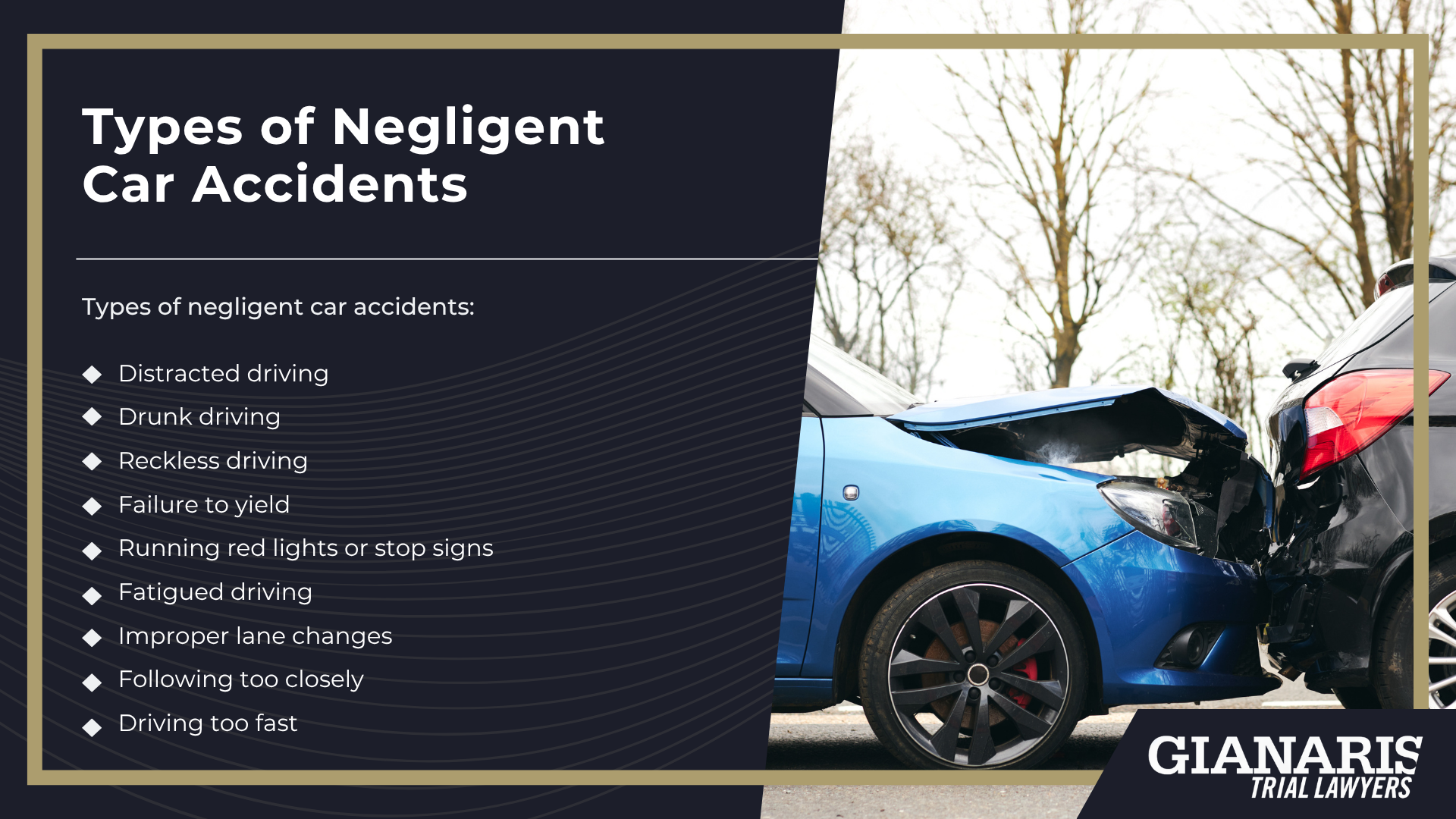
Types of negligent car accidents:
- Distracted driving, including texting, eating, or using in-car technology
- Drunk driving or operating a vehicle under the influence of drugs or alcohol
- Reckless driving, such as excessive speeding, tailgating, or weaving through traffic
- Failure to yield at intersections or merge lanes
- Running red lights or stop signs, often resulting in high-impact crashes
- Fatigued driving, especially in early morning or late-night hours
- Improper lane changes or failing to signal before turning
- Following too closely, which often leads to rear-end collisions
- Driving too fast for road or weather conditions despite posted speed limits
Common Car Accident Injuries
Car accidents can result in a wide range of injuries, from mild discomfort to life-altering trauma.
The injuries sustained often depend on the speed of the vehicles, the point of impact, and whether proper safety restraints were used.
No matter how minor or severe injuries may seem at first, it’s essential to seek prompt medical treatment to protect both your health and your legal claim.
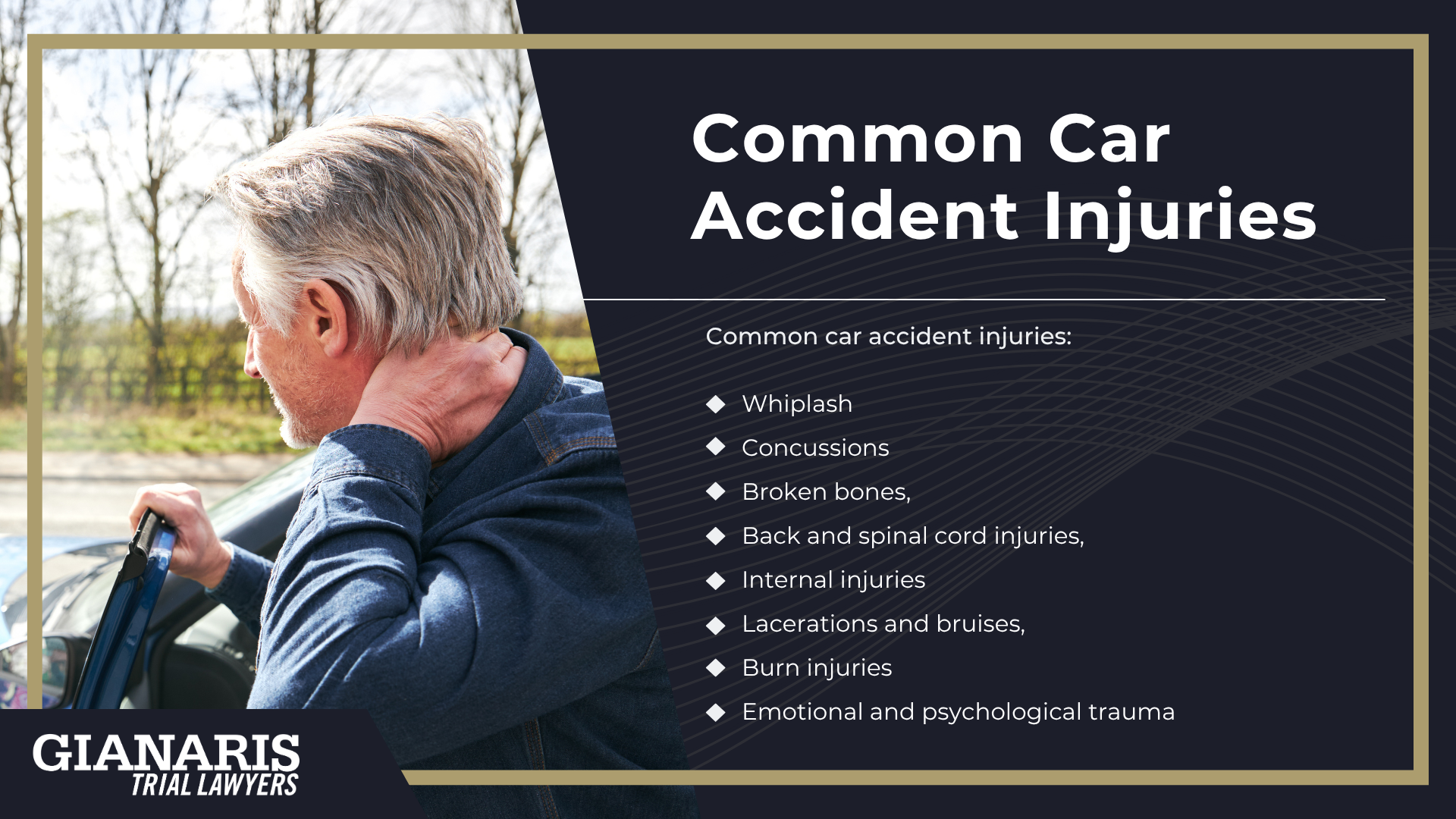
Common car accident injuries:
- Whiplash and soft tissue injuries affecting the neck and shoulders
- Concussions and other traumatic brain injuries
- Broken bones, including arms, legs, ribs, and facial fractures
- Back and spinal cord injuries, which may lead to long-term mobility issues
- Internal injuries to organs such as the lungs, liver, or spleen
- Lacerations and bruises, often caused by shattered glass or airbag deployment
- Burn injuries from fires or chemical exposure during the crash
- Emotional and psychological trauma, including anxiety and post-traumatic stress disorder (PTSD)
